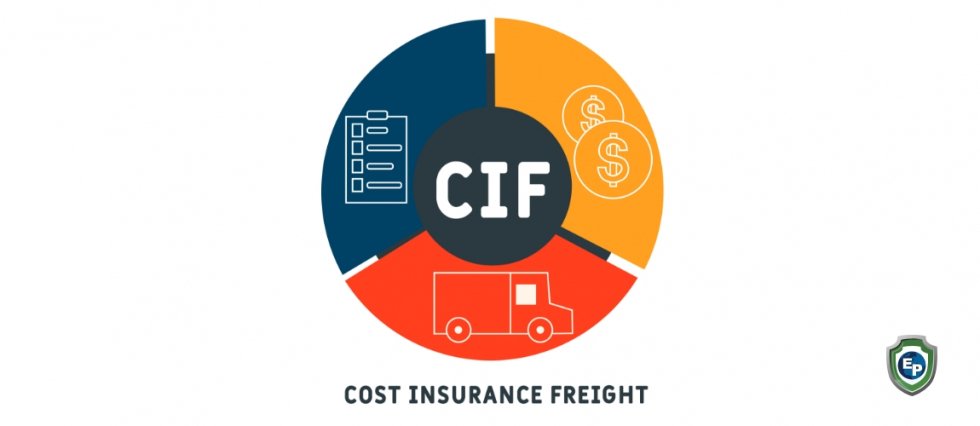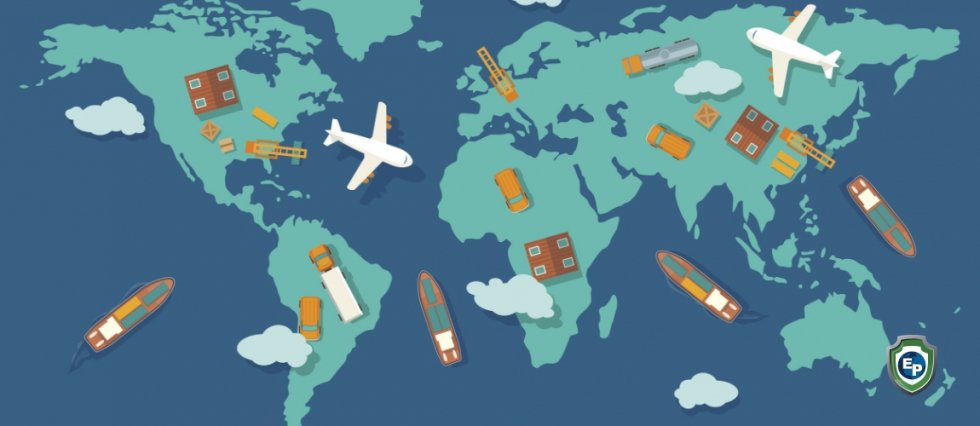Incoterms: Cost, Insurance, and Freight (CIF)
Under CIF, it is easier to determine when the liability ends for the seller and begins for the buyer. To learn more about this method, make sure to check out our blog.

CIF is a common method of import and export shipping that helps determine when the liability ends for the seller and begins for the buyer. Under this rule, the seller is responsible for the transport, marine cargo insurance, and other necessary costs until the shipment reaches its destination. The risk shifts from the seller to the buyer when the goods are loaded and ready for export. However, CIF is unsuitable for containerized transport and restricted to ocean and inland waterway transport.
Advantages & Disadvantages
Small and new businesses can benefit from the CIF method since it puts a smaller task on the buyer and gives more work to the seller. This is especially beneficial for buyers who are lacking the resources to manage a whole shipping process or are working in a new, unfamiliar country. However, for bigger businesses that need more control over the costs, CIF will probably not be the best choice since sellers can control most of the pricing. If the sellers use a freight forwarder of their choice, they might even charge the buyers more to increase their profits.

Seller and Buyer Obligations
CIF requires both the seller and buyer to meet certain obligations. Take a look at the chart below and make sure you have a good understanding of what they are:
Seller’s Obligations
General - Deliver the goods and commercial invoice.
Buyer’s Obligations
General - Pay the price of the goods as agreed in the contract of sale.
Seller’s Obligations
Delivery - Place the goods on board the vessel in a customary manner.
Buyer’s Obligations
Delivery - Take the goods after they are delivered.
Seller’s Obligations
Risks - Responsible for all of the risks until goods are delivered.
Buyer’s Obligations
Risks - Responsible for all of the risks once the seller delivers the goods.
Seller’s Obligations
Carriage - Must contract carriage of goods.
Buyer’s Obligations
Carriage - No obligation.
Seller’s Obligations
Insurance - Must arrange insurance.
Buyer’s Obligations
Insurance - No obligation but should consider additional insurance.
Seller’s Obligations
Delivery/transport document - Must provide a transport document.
Buyer’s Obligations
Delivery/transport document - Must accept the document.
Seller’s Obligations
Export/Import clearance - Responsible for all export clearance expenses. Must also assist with import clearances.
Buyer’s Obligations
Export/Import clearance - Must assist with export clearance and pay for import clearance and all formalities.
Seller’s Obligations
Checking - Must pay for all checking operations like weighing/counting the goods, packaging, etc.
Buyer’s Obligations
Checking - No obligation.
Seller’s Obligations
Allocation of cost - Must pay all costs until goods are delivered. Also responsible for charges related to proof of delivery, export clearance, etc. Must also pay for costs that come with helping the buyer obtain certain documents.
Buyer’s Obligations
Allocation of cost - Must pay from the time when the goods have been delivered. If the buyer requests the seller for assistance, the buyer must pay for any costs that may come up during the process. Must pay for any taxes or duties for import clearance and additional charges caused by the carrier.
Seller’s Obligations
Notices - Must notify the buyer when goods have been delivered.
Buyer’s Obligations
Notices - Must notify the seller of the destination and time.
Let Export Portal help you
New to the world of trade? Work with Export Portal to trade with verified companies and experts from all over the world.






Comments 0